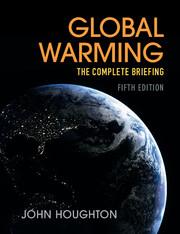Global Warming: A Pressing Crisis
Global warming is one of the most significant and urgent challenges facing humanity today. It refers to the rise in the Earth's average surface temperature due to an increase in greenhouse gases in the atmosphere. This phenomenon, primarily driven by human activities, poses severe consequences for ecosystems, economies, and communities worldwide.
Causes of Global Warming
-
Greenhouse Gas Emissions:
The burning of fossil fuels such as coal, oil, and natural gas for energy production is the leading cause of greenhouse gas emissions. Carbon dioxide (CO₂) is the most prevalent of these gases, but methane, nitrous oxide, and fluorinated gases also play significant roles. -
Deforestation:
Forests act as carbon sinks, absorbing CO₂ from the atmosphere. However, widespread deforestation to make way for agriculture, urbanization, and industrial projects reduces this natural absorption, contributing to higher atmospheric CO₂ levels. -
Industrial Activities:
Factories and industries release large amounts of carbon dioxide, methane, and other pollutants. Industrial processes, along with waste management practices, have significantly increased the concentration of greenhouse gases. -
Agriculture:
Livestock farming generates substantial methane emissions, while fertilizers used in agriculture emit nitrous oxide. Both gases are far more potent than CO₂ in trapping heat in the atmosphere. -
Urbanization and Transportation:
Rapid urbanization, coupled with increased reliance on vehicles, has led to an upsurge in emissions from transportation. Combustion engines release significant amounts of CO₂ and other harmful pollutants.
Effects of Global Warming
-
Rising Temperatures:
The Earth has experienced a consistent rise in global temperatures. This has led to hotter summers, severe droughts, and increased heatwaves, affecting agriculture and water resources. -
Melting Polar Ice and Rising Sea Levels:
Global warming is causing the polar ice caps and glaciers to melt, leading to a rise in sea levels. This threatens coastal cities and islands, increasing the risk of flooding and displacement of millions of people. -
Extreme Weather Events:
The frequency and intensity of extreme weather events such as hurricanes, typhoons, and cyclones have increased due to global warming. These events cause immense damage to infrastructure, ecosystems, and human lives. -
Biodiversity Loss:
Global warming disrupts ecosystems, causing shifts in habitat ranges and threatening species with extinction. Coral reefs, which are vital to marine biodiversity, are particularly vulnerable due to ocean warming and acidification. -
Impact on Human Health:
Rising temperatures and changing weather patterns have increased the prevalence of diseases like malaria and dengue. Heat stress and air pollution also exacerbate respiratory and cardiovascular problems.
Solutions to Combat Global Warming
-
Transition to Renewable Energy:
Replacing fossil fuels with renewable energy sources such as solar, wind, and hydroelectric power can significantly reduce greenhouse gas emissions. -
Afforestation and Reforestation:
Planting trees and restoring forests can absorb excess CO₂, acting as a natural solution to mitigate global warming. -
Energy Efficiency and Conservation:
Adopting energy-efficient technologies and reducing energy consumption can minimize emissions. Simple actions like using energy-efficient appliances and insulating buildings can make a big difference. -
Sustainable Agriculture:
Practices such as organic farming, crop rotation, and reducing food waste can lower agricultural emissions. -
Policy and Legislation:
Governments worldwide must implement and enforce policies aimed at reducing emissions, such as carbon taxes, emission trading systems, and strict regulations on industrial pollutants. -
Individual Actions:
Every individual can contribute to combating global warming by adopting sustainable practices. Reducing waste, conserving energy, using public transportation, and spreading awareness are simple yet impactful measures.
Conclusion
Global warming is a crisis that demands immediate and collective action. It is not just an environmental issue but a challenge that affects the entire fabric of human life, from economies to public health. By addressing its root causes and embracing sustainable practices, humanity can work towards a more stable and equitable future. While the path ahead is challenging, the solutions exist — and it is up to us to implement them with urgency and resolve.

